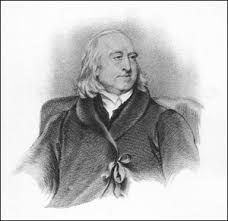
Specialty drugs can cost hundreds of thousands of dollars per member per year, or more. One new specialty drug approved this year costs +$2,000,000 for an annual treatment………
By Bill Rusteberg
Specialty drugs are a ticking time bomb that can bankrupt a self-funded health & welfare plan. Stop loss insurance may mitigate the risk during the year in which the risk first appears, however upon renewal stop loss insurance will transfer the risk back to the plan in the form of a laser.
 Specialty drugs can cost hundreds of thousands of dollars per member per year, or more. One new specialty drug approved this year costs +$2,000,000 for an annual treatment.
Specialty drugs can cost hundreds of thousands of dollars per member per year, or more. One new specialty drug approved this year costs +$2,000,000 for an annual treatment.
Plan sponsors should know this. Plan sponsors are fiduciaries.
Fiduciaries must act in the best interests of plan participants. They must protect and manage plan assets in a prudent manner consistent with good judgement.
If a plan sponsor continues to cover budget busting specialty drugs that can bankrupt their plan leaving members without any health care benefits, are they fulfilling their fiduciary duties?
We say “No.”
 Four of our clients have completely eliminated specialty drugs from their plans. The method of doing so is simple (and legal). It’s called the Hot Potato Method. To date, affected members have universally been able to obtain their drug/s through manufactures patient assistance programs.
Four of our clients have completely eliminated specialty drugs from their plans. The method of doing so is simple (and legal). It’s called the Hot Potato Method. To date, affected members have universally been able to obtain their drug/s through manufactures patient assistance programs.
These employers initially transferred the risk (stop loss insurance), then assumed the risk (lasers), then transferred the risk again (by eliminating coverage).
There is another strategy to be employed without the need to completely eliminate expensive specialty drugs. Pharmacy tourism is one. Traveling across an imaginary line (border) into another geographic area (country) one can find the same drug at a fraction of the price.
Another strategy is to reimburse prescription drug expenses as we used to in the old days of indemnity plans. Patients paid for their prescriptions out of their own pocket to later file a claim for reimbursement. Gone would be the co-pay “banking arrangement.” Members would then understand the true cost of drugs and will become better, smarter shoppers. Price variations among retail pharmacies can be significant.
Prescription drugs average 25-40% of total plan spend these days. We have a few client groups whose prescription drug spend exceeds their medical spend. They no longer have a health insurance plan, they have a drug plan.
According to a recent study (Aegis Risk Medical StopLoss Premium Survey) 8% of self-funded plan sponsors reported consideration of returning to fully-insured – up from the prior year at 1%. Could budget busting specialty drugs be one reason?
 It’s certainly controversial to exclude life saving prescription drugs from group coverage. But the sad truth is employers are running out of money for health care. So are employees. That leaves all with very little choice anymore.
It’s certainly controversial to exclude life saving prescription drugs from group coverage. But the sad truth is employers are running out of money for health care. So are employees. That leaves all with very little choice anymore.
Plan assets must be expended prudently and in the best interests of plan members collectively. Elimination of specialty drugs is consistent with the moral system founded by English philosopher Jeremy Bentham (1748–1832) and encapsulated in the principle of “the greatest good for the greatest number.”
Plan sponsors adopting the Hot Potato Method are utilitarians. Those who don’t are either idealistic or high stakes gamblers, or a combination of both.

